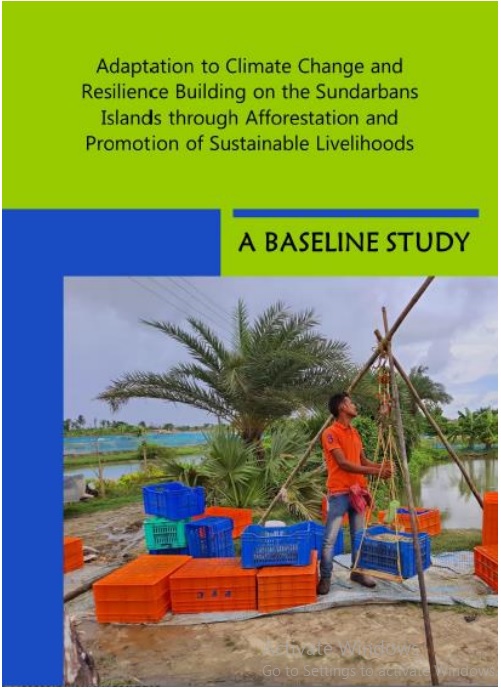Adaptation to Climate Change and Resilience Building on the Sundarbans Islands through Afforestation and Promotion of Sustainable Livelihoods – Baseline Study
Contributed By: Dr. M.N. Roy, Dr. Sanghamitra Kanjilal Bhaduri, Dr. Sabari Bandyopadhyay, Mr. Sangram Mukherjee, Ms. Mayuri Sen, Dr. Tanusree Dutta, Mr. Debojyoti Majumder, Ms. Riyanka Ghosh, Mr. Saptadip ChakrabortyHoffnungszeichen | Sign of Hope (SoH, an organization based in Germany) is a renowned organization committed for protecting human rights, humanitarian aid and development cooperation. To combat the negative effects of climate change, the organisation intends to initiate a project entitled, ‘Adaptation to climate change and resilience building on the Sundarbans Islands through afforestation and promotion of sustainable livelihoods’, in 13 villages across three GPs (Brajaballavpur and GPlot of Patharpratima block and Frazerganj of Namkhana block) of South 24 Parganas district of West Bengal. The aim of the Baseline study was to understand the present context of the project in terms of socio-economic and environmental aspects; thereby provide support in designing of the project intervention including the priority indicators to assess achievement of the programme interventions and efficient and effective planning of the interventions. The study has followed primary survey based on mixed method approach – using a combination of quantitative and qualitative tools for the survey. It has covered one village in Brajaballavpur, five villages in G-Plot and seven villages in Frazerganj.
The study also involved processing of satellite images for assessing forest cover. The results identified a weak link between livelihoods and natural resource management that creates negative impacts on sustainability in the region. Participation in SHG is moderate in the area, which can be increased further to collectivize the local actions and result into higher community-initiated efforts to tackle the effects of climate change. Level of livelihood diversification is low to moderate in the area with most households engaging in only two activities to earn their income. Participation in migration is found to be low which can be an effective coping mechanism with livelihood shocks faced by households during pandemic or climatic disasters. The vulnerability of all types of livelihoods is high in the area, especially so, as fishing and shrimp seed collection are highly seasonal activities, which have faced the major wrath of the COVID-19 pandemic and climatic disasters in the last year. Inability to access market and low productivity are major factors leading to recurring losses, for the farmers and fishermen.

